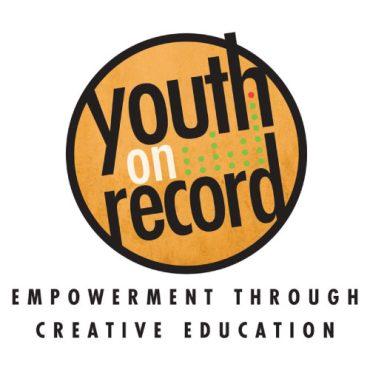The American Civil Liberties Union filed an official complaint to the city of Boulder last week over what is known as the city’s camping ban.
The camping ban is a combination of two different pieces of Boulder policy that give police the authority to ticket individuals living outside. The ACLU refers to the first ordinance as the blanket ban. Boulder created the blanket ban in the 1980s. It criminalizes individuals using a blanket outside on public land. Boulder amended the second piece of policy, the tent ban, last year to extend its scope. The tent ban prohibits using tents, or any other enclosed structure on public property.
KGNU’s Alexis Kenyon spoke with Annie Kurtz, an attorney and Equal Justice Works Fellow at the ACLU of Colorado, about Boulder’s camping ban and why the ACLU says it violates people’s civil rights.
-
play_arrow
ACLU Says Boulder’s Camping Ban Is Unconstitutional Alexis Kenyon
Interview Transcript:
Alexis: Annie, thank you so much for talking with me today.
Annie: Thank you for your interest.
Alexis: So, to start, how are these “camping ban” policies violating people’s civil rights?
Annie: Sure, so the law is sometimes complicated. I think this one is nice and straightforward. The basic idea is just that you can’t punish someone for doing something based on the false premise that they had a choice in the matter. So, the blanket ban: using a blanket while you’re sleeping outside in Boulder is a crime.
Boulder is punishing unhoused people for sleeping outside even though Boulder has no other option for them. That’s unconstitutional.
The other law that we are challenging, is the tent ban. If it’s snowing outside, then you shouldn’t be ticketing someone for sheltering themselves in a tent. If they have nowhere indoors to go. It’s really a fairly commonsense thing. It violates the constitutional prohibition on cruel and unusual punishments.
Alexis: I mean, if it’s that straightforward, how did the city justify the camping bands in the first place?
Annie: That’s a really good question. I’m not sure what the origin of the first camping ban was, but I can tell you that the city was using the fact that there were empty shelter beds kind of on a nightly basis, to justify all of this criminal enforcement, right? The idea was, people are unhoused voluntarily. We have services available for them and they’re just choosing not to use them.
In fact, the main shelter in Boulder had at the time this very exclusionary policy on the books. They had a residency requirement that if you went to the shelter and you weren’t already a Boulder resident for six months, you couldn’t stay overnight there, essentially.
What the data now shows is that since that policy was lifted, the shelter has been turning people away because all of a sudden, a bunch more people are actually eligible to stay there. So I think at least 250 people have been turned away from the shelter.
Alexis: Do you have any idea how much the city has spent enforcing this ban from the actual policing to putting people in jail, ticketing, and then court fees?
Annie: So, there’s plenty of data that shows that it is less expensive to house people than it is to criminalize their existence. What I can tell you is that from January 2020 to January 2022, there were close to a thousand cases filed at the city court under one of these two ordinances. Around the same time that the city voted to expand this tent ban, they also allocated an additional, almost $3 million, to these anti-homeless enforcement practices.
Alexis: I mean, it seems like what the city was trying to do with, at least the expansion of the tent ban, is make homelessness go away by criminalizing it. I mean, did it work? Does that ever work?
Annie: No, definitely not. It’s not working. Every expert will tell you it doesn’t work. And I don’t think that’s the point of them either.
Alexis: Well, what is the point? I mean, I know you’re not the one who created the ban, but I mean, what do you think the idea is behind them? It seems like a really expensive way to not solve a problem and in so doing harm a lot of people are already super vulnerable.
Annie: Honestly, I think it is about trying to get people to leave. I think it’s just you know, a lot of the folks I know that have had these laws enforced against them in Boulder have had police say to them, “Get out of Boulder.”
And so, I don’t think that they were ever intended to be a solution to homelessness. I think they were intended to remove visible poverty from towns where, you know, people are uncomfortable seeing it. But, I can tell you that criminalization will never solve homelessness. You can’t punish someone out of their poverty.
Alexis: What happens if the city does respond to the complaint and stops ticketing people. Other than not being ticketed, I mean, do you think this will make a difference for people who are unhoused in Boulder?
Annie: I hope so. I mean, I think that first of all, getting tickets shapes people’s lives through this kind of constant police interaction. I think that even if that were all that changed, that would be a big deal.
But, I am hoping that the city will use other tools that it has rejected in the past or that it used to use, and then, it’s gotten rid of. There are other options available. The city has voted against safe parking. It’s closed its day shelter. It has cut the number of shelter beds in half. These are all options that the city has, kind of, shunned in favor of putting all of its eggs in the basket of criminalization. So, I am hoping that this lawsuit can shift us in a different direction.
-
play_arrow
ACLU Says Boulder’s Camping Ban Is Unconstitutional Alexis Kenyon
Podcast: Play in new window | Download


















